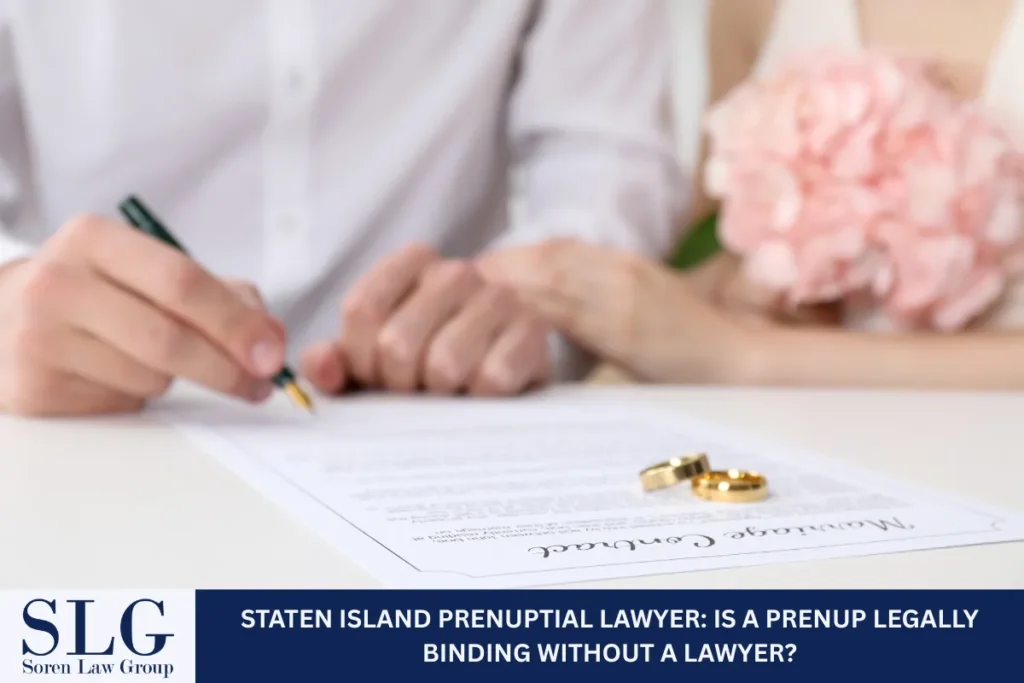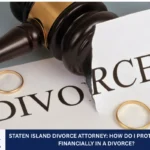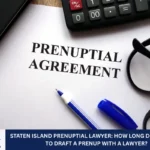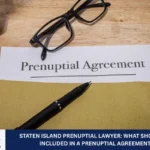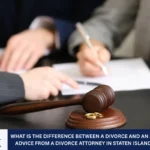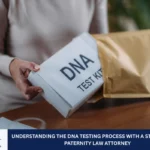Are you getting married in New York and wondering if a prenuptial lawyer is necessary for your prenup to be valid? Many couples want to protect their financial future, but they’re unsure about the legal process and whether they need to pay attorney fees. It’s easy to think that a do-it-yourself or online prenup could solve everything, but the reality is more complicated. Without legal advice, people risk making costly mistakes that can leave them unprotected when they need it most. This article will show you exactly what makes a prenuptial agreement valid in New York, whether you really need a lawyer, how to ensure your marital agreement stands up in court, and why having legal professionals on your side is the smartest way to secure your future together.
Understanding Prenuptial Agreements in New York: What Are They?
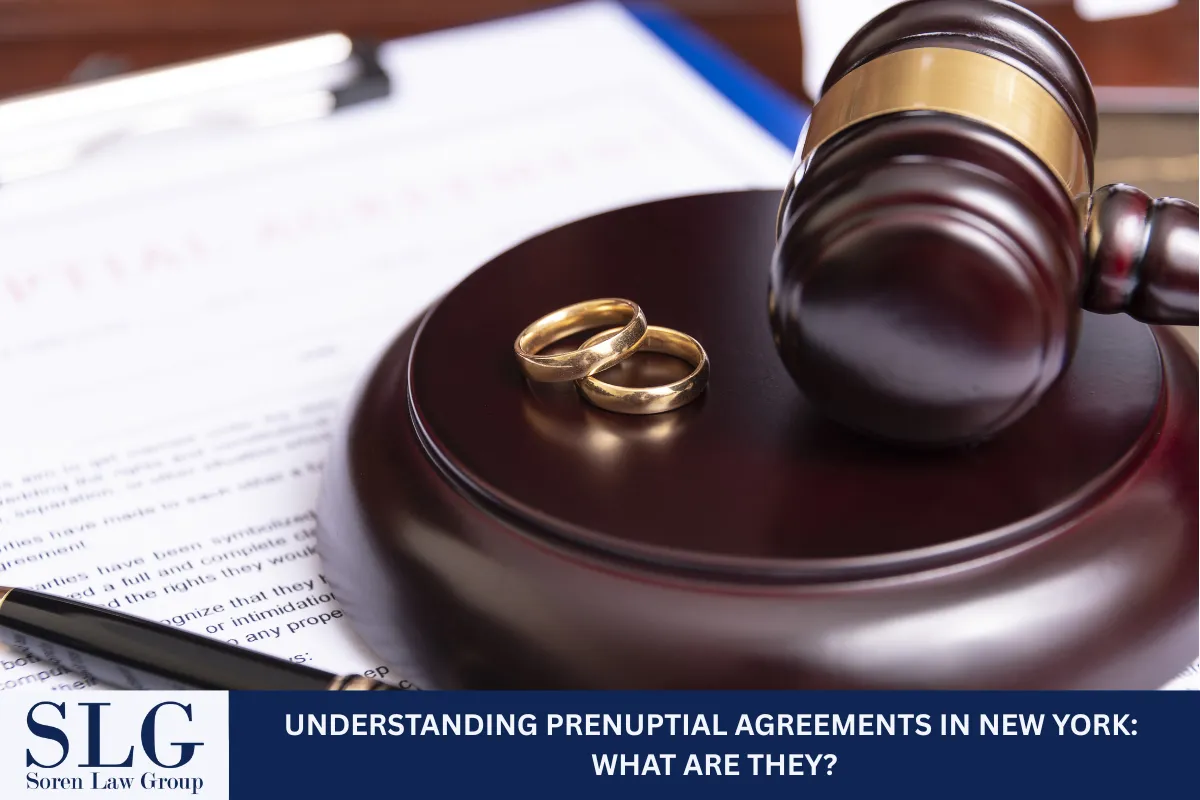
A prenuptial agreement, sometimes called a prenup, premarital agreement, or antenuptial agreement, is a legal contract two people enter into before getting married. It lays out each person’s rights and responsibilities if the marriage ends—whether through divorce or death. In New York, prenuptial agreements are common for managing property division, spousal support, and debts, especially when one or both spouses own businesses, have children from prior relationships, or hold significant assets such as real estate and retirement accounts.
Types of Marital Agreements
- Prenuptial Agreements: Signed before marriage.
- Postnuptial Agreements: Similar to prenups, but signed after the wedding.
- Separation Agreements: Used during legal separation or divorce.
- Marital Settlement Agreements: Finalize terms at divorce, often based on a prenup or postnup.
What Can Prenups Cover?
Prenuptial agreements are comprehensive tools and may cover:
- Property rights: Define marital property versus separate property.
- Asset management: Who gets real estate, bank accounts, retirement accounts (pensions, 401(k), IRA), businesses, or family-owned business interests?
- Debt allocation: Deciding who is responsible for which debts.
- Spousal support: Also called maintenance or alimony.
- Estate planning: Inheritance rights, elective share waivers, or estate rights.
- Limitations: Child custody and child support provisions aren’t always enforceable; New York courts always consider the child’s best interests, regardless of what a prenup says.
Legal Requirements for a Valid Prenuptial Agreement in New York
To be valid and enforceable in New York, a prenuptial agreement must meet strict Legal Requirements.
Written and Signed
The agreement must be in writing. Both parties must sign it. Oral agreements are not valid. This requirement applies to prenuptial and postnuptial agreements.
Notarization and Acknowledgement
Under New York Domestic Relations Law § 236(B)(3), a prenup must be “signed and acknowledged by the parties, in the manner required for a deed to be recorded.” This means it has to be:
- Notarized by a notary public or other authorized official
- Properly acknowledged, sometimes called “deed-level” formalities (Real Property Law § 309-a)
Voluntariness
Both parties must agree voluntarily:
- No duress, coercion, undue influence, or pressure.
- Signing right before the wedding, especially under stress, may be challenged later.
Full and Fair Disclosure
There must be complete financial disclosure. Each party should provide a schedule of assets and liabilities (net worth statement), including:
- Bank accounts, investments, real estate, business ownership, retirement accounts, and debts.
- Transparency is key: hiding information or misrepresenting value could make the prenup invalid.
Fair and Reasonable Terms
The agreement can’t be “unconscionable,” meaning grossly one-sided or unfair at the time of signing. Courts will look at whether one party was taken advantage of (overreaching) or if the deal is inequitable.
Execution Before Marriage
It must be executed before marriage. Postnuptial agreements are valid if properly executed after marriage, but follow similar rules.
Is a Prenup Legally Binding Without a Lawyer in New York?
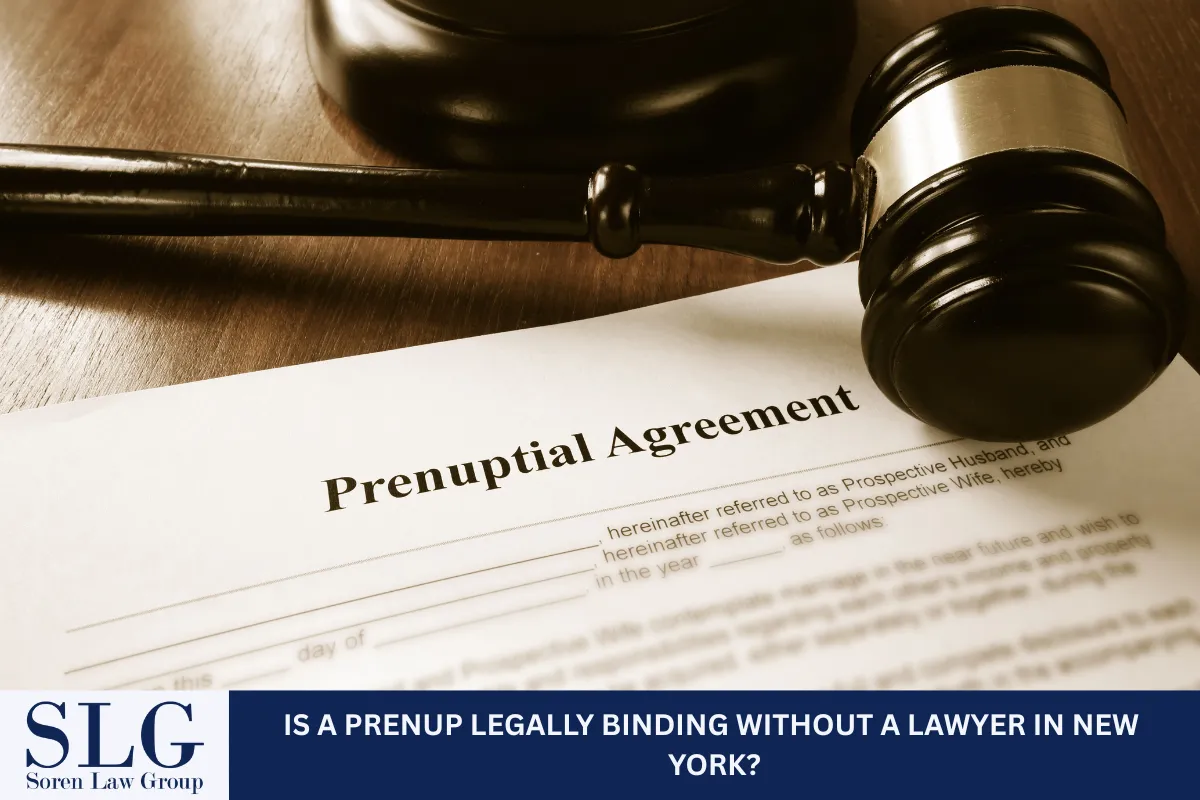
Yes, you can have a legally binding prenuptial agreement in New York without a lawyer. The law does not require each spouse to have their own attorney when signing a prenup.
The Risks of No Attorney Review
- But here’s the danger: without legal advice, there’s a higher risk that the agreement will not be enforced later. Courts have overturned or set aside prenups in New York for defects that a prenuptial lawyer could have avoided, such as:
- Not following proper notarization or acknowledgment rules.
- Lacking full and fair financial disclosure.
- Unintended waivers of critical rights (spousal maintenance, inheritance rights, property rights).
- Unfair or “unconscionable” terms.
While the law doesn’t require a lawyer, it strongly recommends that each person have independent counsel (separate attorneys). In practice, judges look for signs that both parties understood what they signed. Signing a “waiver of independent counsel” might not be enough if questions arise later.
Attorney Roles and Benefits
A prenuptial lawyer helps in several ways:
- Clarifying state laws and your rights.
- Drafting, reviewing, or negotiating fair terms.
- Ensuring proper disclosures, asset schedules, and notarization blocks.
- Avoiding defects that can make a prenup unenforceable.
- Advising on unique elements for business owners, large estates, or legal separation circumstances.
When Are Prenuptial Agreements Unenforceable or Void in New York?
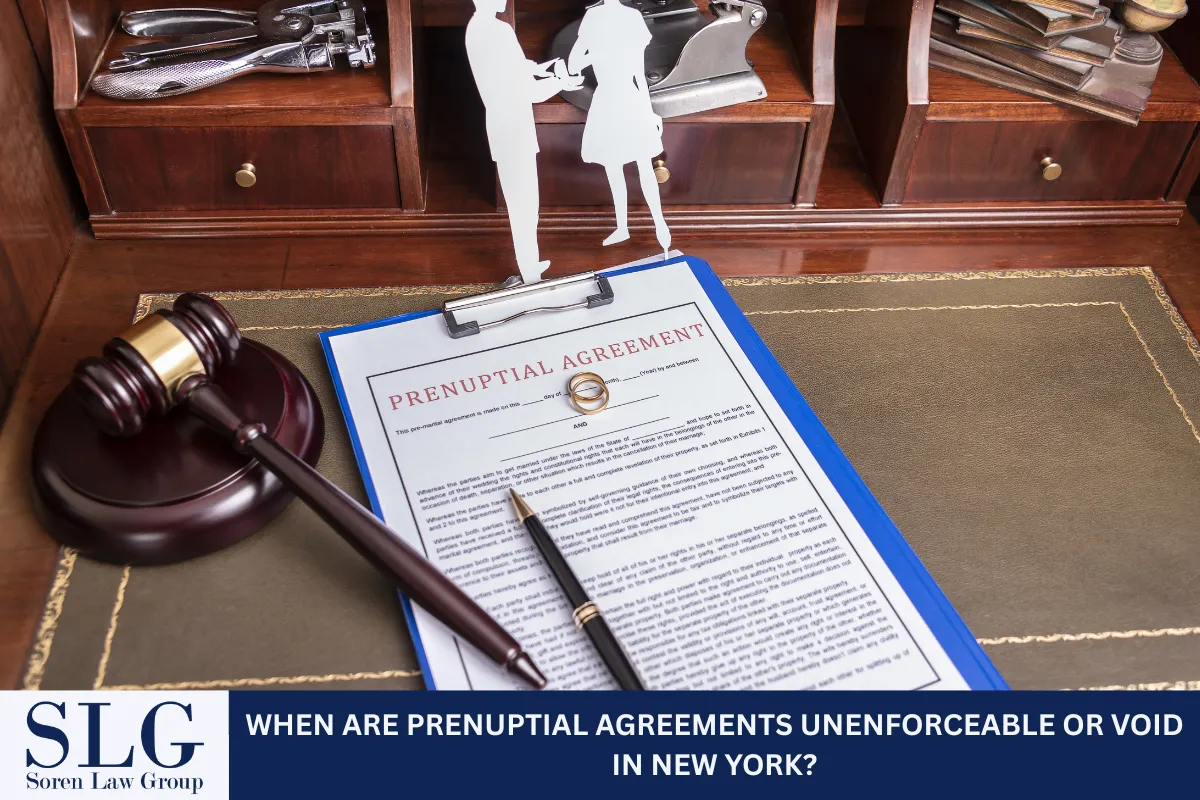
Not every marital agreement holds up. New York courts, including family and matrimonial courts, have clear grounds for invalidating prenuptial agreements. Some of the main reasons include:
Lack of Proper Notarization/Acknowledgment
If the prenup doesn’t have the proper certificate of acknowledgment, isn’t notarized, or contains errors, it may be void. This is a common downfall of DIY, online prenup, template, or pro se (self-drafted) agreements.
Fraud, Misrepresentation, or Concealment
If a party hides assets, lies about debts, or commits fraud, the prenup can be invalidated. Full, honest disclosure is non-negotiable.
Duress, Coercion, or Undue Influence
If someone is pressured to sign (“Sign this or the wedding’s off!”) or does so under emotional stress, the court may set aside the agreement.
Lack of Full and Fair Disclosure
Failing to provide a net worth statement or hiding financial information can make the agreement vulnerable to challenge.
Unconscionability or Unfairness
Courts won’t enforce agreements that are so unfair as to “shock the conscience,” such as those that leave one spouse destitute while the other keeps everything.
Lack of Capacity
If either person did not have legal capacity (e.g., mental incapacity, intoxication), the prenup is voidable.
Defective Execution
If the agreement is not signed and acknowledged with deed-level formalities, it is likely to fail. Notarization defects must often be “cured” for the document to stand.
Prohibited Provisions
A prenup can’t dictate child custody, visitation, or child support in a way that overrides the best interests of the child at the time parents separate. Those issues are always subject to review by the family court.
How Is a Prenup Challenged or Upheld in New York?
If a dispute arises during divorce negotiations, legal separation, or divorce proceedings, a spouse can ask the court to enforce, vacate, or set aside the prenup. The judge will review:
- Was there full and fair disclosure?
- Did a lawyer represent each party, or did they knowingly waive that right?
- Was the agreement properly acknowledged before a notary public?
- Was it fair when signed—and is it fair to enforce now?
- Was there fraud, duress, or unconscionability?
Commonly Cited New York Cases
Key court decisions such as Christian v. Christian, Galetta v. Galetta, Matter of Koegel, Petracca v. Petracca, and Cioffi-Petrakis v. Petrakis guide judges in weighing these issues.
The Process of Drafting, Reviewing, and Negotiating a Prenup
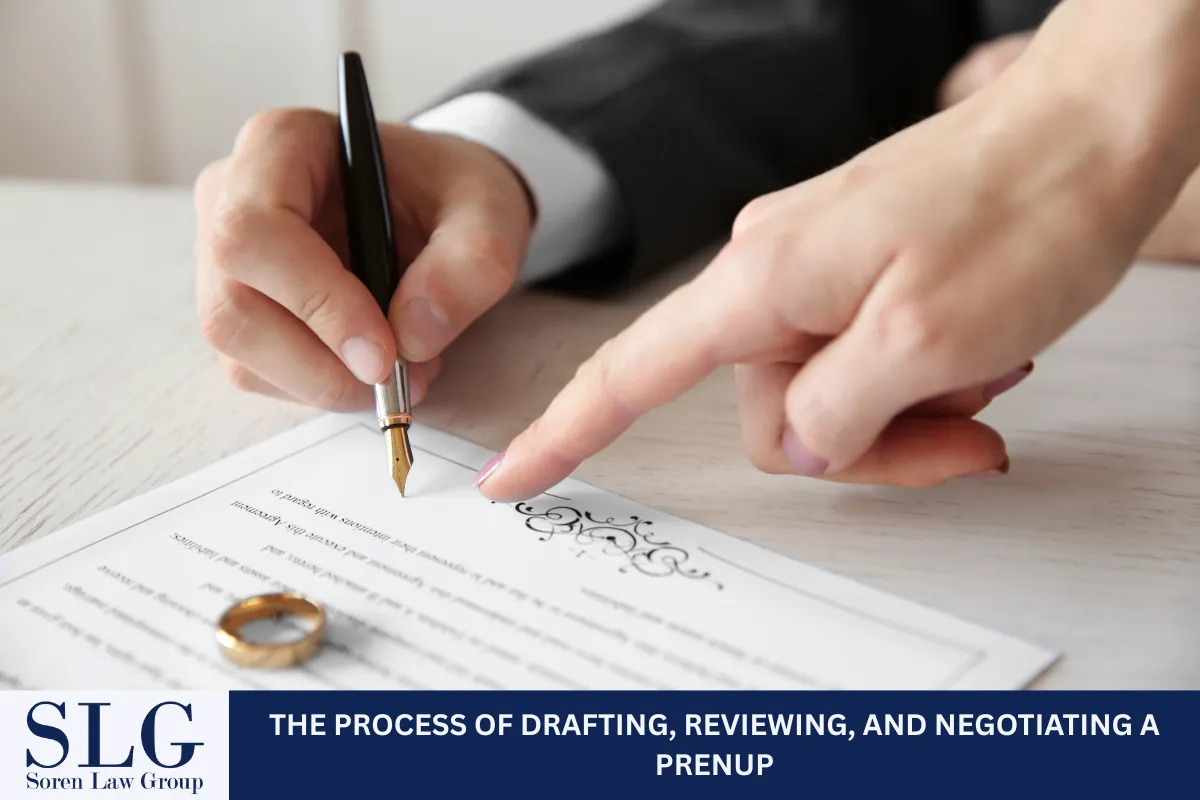
Here’s how most New York couples should approach the prenup process:
- Consultation: Speak with a qualified prenuptial lawyer in your area (Staten Island, Brooklyn, Queens, Manhattan, Long Island, or NYC in general).
- Drafting: The Attorney prepares an agreement tailored to your needs, including schedules of assets and all disclosures.
- Review: Each party reviews the draft independently with its own lawyer.
- Negotiation: Work through any issues or concerns—mediation or collaborative law may help in complex cases.
- Finalization: Both parties sign before a notary public; ensure acknowledgment is completed correctly.
- Safe Storage: Keep a copy for future reference.
Timing is Everything
Begin this process well before the wedding. Waiting until the last minute increases the risk of duress claims or rushed/incomplete disclosures, which can hurt the prenup’s enforceability.
Can You Use a DIY, Online, or Template Prenup in New York?
Online prenups, HelloPrenup platforms, template agreements, and self-drafted (pro se) marital agreements are popular for their speed and budget-friendliness. But these options often fail to:
- Include full asset and liability schedules.
- Meet New York’s unique notarization and acknowledgment rules.
- Address complex financial topics, including retirement accounts, business ownership, and inheritance rights.
- Avoid unconscionable terms
Judges in New York regularly throw out these agreements because they don’t comply with the law. A prenuptial lawyer helps ensure compliance, reducing your risk of a lengthy—and expensive—legal battle.
Should Each Party Have a Separate Attorney?
While the law does not strictly require both sides to have a lawyer, best practice dictates that each person hire independent legal counsel. Here’s why:
- Shows the prenup was negotiated fairly, with both sides fully informed.
- Prevents claims later that one person “didn’t understand” the legal process.
- Increases the likelihood that the agreement will be enforced, as courts view independent review as a sign of voluntariness and fairness.
If either party chooses not to have a lawyer, a written waiver of independent advice should be included—but it is not foolproof.
Key Features of a Strong New York Prenuptial Agreement
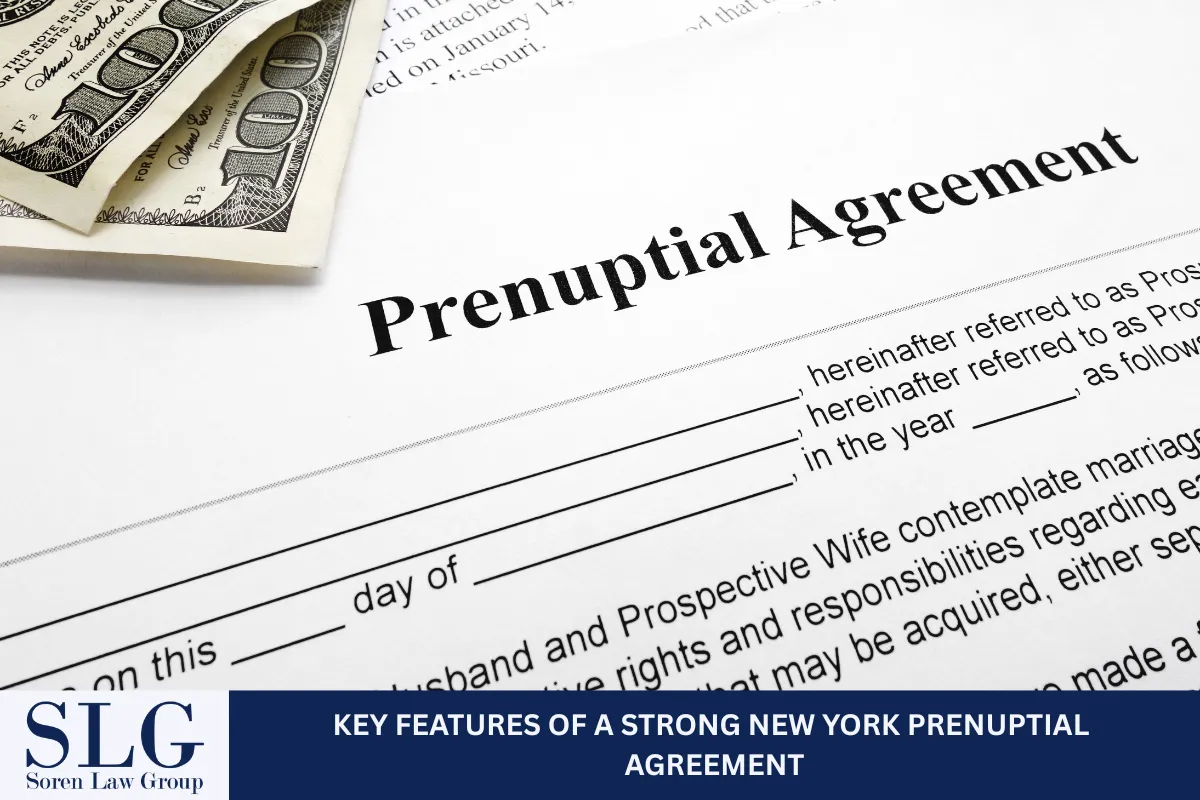
A solid prenup or postnup typically includes:
- Clear recitals of each party’s intent and understanding.
- Schedules/exhibits listing all assets, debts, income, business interests, and real estate investments.
- Disclosure clauses affirming transparency.
- Waiver clauses for spousal maintenance, elective share, or property division if desired.
- Severability clause so invalid sections don’t void the whole contract.
- An integration or merger clause confirming this is the whole agreement.
- Modification/amendment protocol for making changes later.
- Sunset clause (optional) setting an expiration date for the prenup.
- Forum selection and choice of law (ensure it applies New York law).
The Importance of Location: Staten Island and Beyond
Whether you need a Staten Island prenuptial lawyer, Brooklyn prenup attorney, Queens prenuptial lawyer, or help anywhere in New York City or State, local experience matters. Each courthouse—Richmond County (Staten Island), Kings County (Brooklyn), Queens County (Queens), Manhattan, the Bronx, and Long Island—has its own practices, but all follow the same basic state laws. Choose a professional familiar with local rules for the best outcome.
Secure Your Financial Future: Why a Staten Island Prenuptial Lawyer Matters
A prenuptial or postnuptial agreement allows couples to define their financial responsibilities, property rights, and debt allocation in advance. While it is possible to make a valid prenup without a lawyer, relying on a qualified Staten Island prenuptial lawyer or family law attorney is the safest way to protect your interests. Legal professionals ensure your agreement complies with New York’s strict marital law standards, giving you peace of mind and a strong foundation for the life ahead.
Whether you’re marrying for the first time, blending families, or own complex assets, don’t leave your financial rights and marital assets to chance. Take the time for full disclosure, attorney review, and proper drafting—before you say “I do.”
Staten Island Prenuptial Lawyer – Soren Law Group
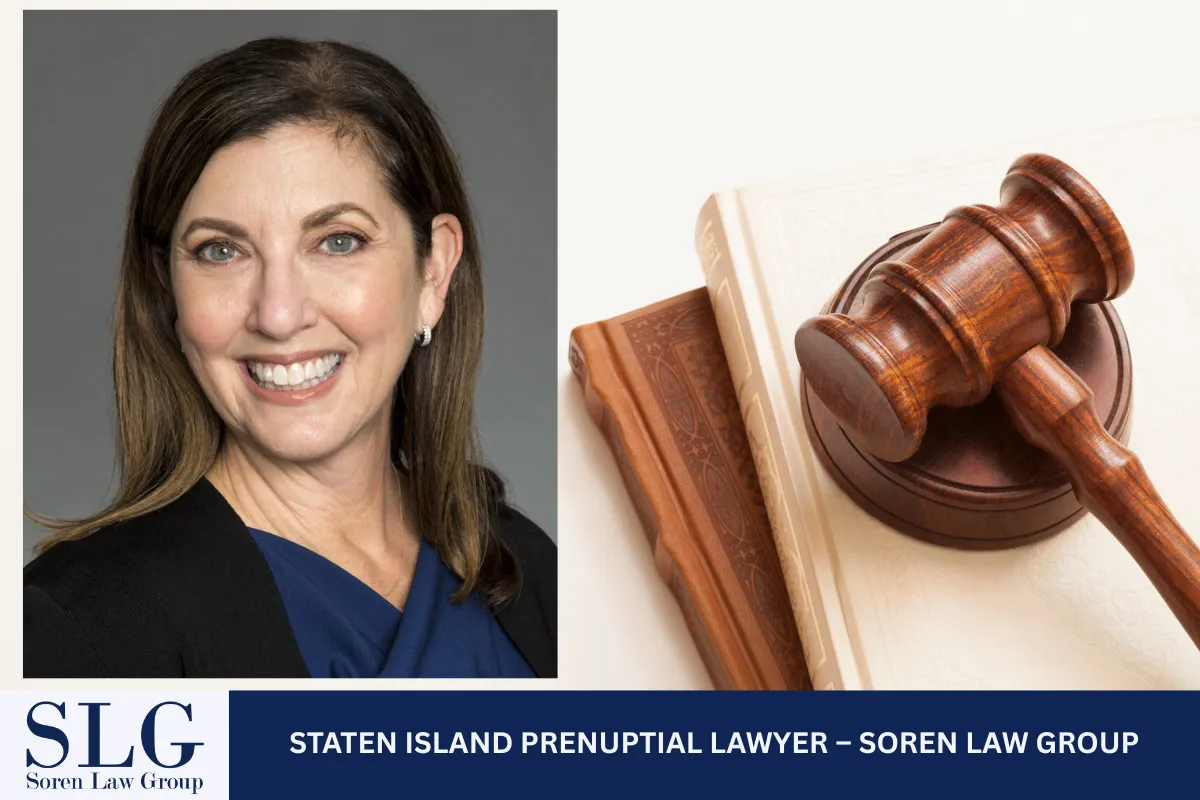
Thinking about a prenuptial agreement in Staten Island or anywhere in New York? Don’t risk your financial security with a DIY template. Soren Law Group’s experienced prenuptial lawyers ensure your prenup is fully valid under New York law, with proper disclosures, notarization, and fair terms. We’ll protect your business, real estate, retirement accounts, and personal assets—while avoiding costly mistakes that can make a prenup unenforceable. Let our skilled legal team guide you through the drafting, review, and negotiation process for total peace of mind.
Call us today at (718) 815-4500 to schedule a confidential consultation and secure your future the right way!
FAQ: Essential Questions About New York Prenups
1. Can a prenuptial agreement protect my business if I’m a business owner in New York?
Yes, a properly drafted prenup can clearly state that your business, or your share in a family-owned business, is your separate property. It can keep future growth, income, and management decisions out of marital property or divorce negotiations. However, to make this protection effective, you must disclose the business’s full value and any related debts. Additionally, your spouse should understand exactly which rights are being waived and, ideally, have legal advice.
2. What happens if my spouse and I have joint bank accounts or add assets together after the prenup is signed?
A prenup only covers what’s agreed to at the time of signing, so if you commingle funds—like putting separate property into joint bank accounts or buying real estate together—it may become marital assets. New York law may treat these as marital property during divorce unless your prenup explains how new joint assets should be handled. It’s good practice to update your agreement or consult a divorce lawyer if your circumstances change.
3. Can a prenup cover spousal maintenance or spousal support—what are the limits?
Yes, a New York prenup can include a waiver of spousal support, maintenance, or alimony, setting limits or even eliminating obligations. However, courts may override these waivers if they would leave one spouse unable to provide for basic needs (an unconscionable result) or if enforcing the waiver would be unfair at divorce. This is especially true if circumstances have changed drastically since the prenup was signed.
4. How does New York handle child custody and child support in prenups?
New York courts will not enforce child custody or child support terms in a prenuptial agreement if they conflict with what the family court finds to be in the best interests of the child at the time of separation or divorce. You can express your intentions, but these issues are outside the full control of a prenup. Courts may review your agreement, but they make the final decisions for children’s welfare.
5. What are some common mistakes people make with prenups in New York?
Many people make mistakes, such as failing to disclose all financial information, not using a notary public for proper acknowledgment, signing the agreement too close to the wedding (suggesting pressure or duress), or using a generic online template that doesn’t comply with New York law. Skipping independent legal counsel is another major error. These mistakes can make your marital agreement easy to challenge or even void in court.
Read more: Staten Island Prenuptial Lawyer: How Long Does It Take to Draft a Prenup With a Lawyer?

